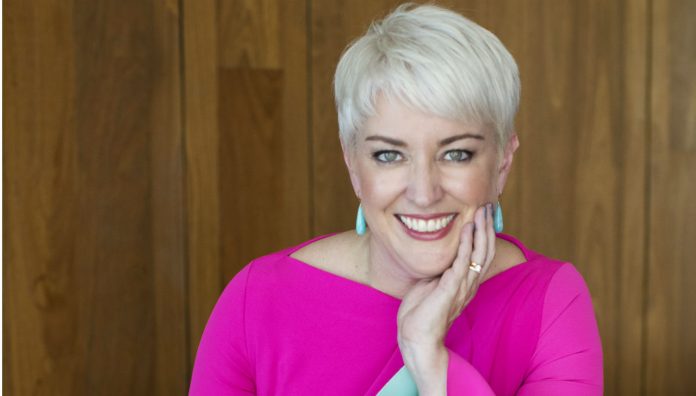Cathie Reid MPS is an entrepreneur, a self-confessed ‘tech geek’, a philanthropist and healthcare pioneer. But her career trajectory could have been very different if it wasn’t for the encouragement of a former employer and teacher.
What initially drew you to the pharmacy profession?
I started working part-time in a pharmacy after school and was planning on becoming a typist, but the owner of the pharmacy was good friends with the Year 11 co-ordinator at my high school and they switched me from typing into chemistry.
I turned up to school on the first day of Year 11 to discover that I was a chemistry student. When I went to work at the pharmacy that afternoon my boss sat me down and said that if I really felt my passion was for typing I could always go back to night school, but that chemistry would keep a lot more options open. I went home and told my parents about the switch and the rest is history!
How did you transition from pharmacy ownership to cancer care?
Over the years, Stuart – my husband and business partner who is also a pharmacist – and I saw an increasing demand for oncology pharmacy services from our hospital client base. We saw the opportunity to build a really deep clinical pharmacy expertise in this area to meet that need, and felt that over time our experience in running pharmacy businesses would also translate into being able to assist the oncologists with the administration and management of their practices.
Our clinical partnership created a trust-based relationship, which meant that when the practitioners were looking for that additional level of support, we were an obvious partner choice for them.
We acquired the first of the day oncology hospitals that formed the foundation of our company Icon Cancer Care in 2012. From there we’ve seen radiation oncology and chemotherapy compounding business join the group to deliver fully integrated cancer care services across Australia and now Asia.
How has your clinical background informed your business ambitions and approaches?
Our clinical backgrounds ensure that we always bring a patient-first approach to the business. We understand what healthcare professionals need to deliver optimal patient care, and we also understand what the patient experience needs to deliver.
Our business goals and metrics are based on patient interactions and our core business values all relate to delivering on our overall goal – providing the best care possible, to as many people as possible, as close to where they live as possible.
Our clinical background has also ensured there has always been strong support for team members’ research and practice development initiatives, which has led to outcomes which have not only improved our own pharmacy business, but have also delivered industrywide leadership and practice change.
What is your next big project?
My next big project is focused on healthcare data and the opportunities it provides to improve care and outcomes. We’re currently working on integrating the data contained within the various clinical systems across Icon Group with the data that patients themselves generate from sensors and wearables, with a goal of delivering the information that both clinicians and patients need to best manage their health. Healthcare professionals traditionally have no way of quantifying what the patient experience of the prescribed medicine or treatment is outside of the window of time that the person is physically in front of them, and technology provides the opportunity to completely transform the way models of care are constructed and delivered.
We’re really excited about the potential that this work has to allow a better understanding of the impact of cancer treatments on the patient overall, not just on their cancer.
What advice would you give to ambitious young pharmacists?
Don’t wait to be asked to deliver practice-enhancing programs. Think about the ways that you can create value for your employer, what would be a good fit for your environment and customer base, and then take a plan to the owner.
Take responsibility for implementing and driving the program, and report back to the owner on the outcomes – good and bad. You need to be proactive in illustrating the value you’re creating, not sitting back waiting and hoping that someone will recognise you.
What do you see as the biggest challenge or opportunity for pharmacy in future?
There is a whole new category of prescriptions coming our way – an app or a wearable device will be prescribed rather than, or in conjunction with, a medicine.
This new category of ‘technology prescriptions’ or ‘digital prescriptions’ will see patients capturing data via the device or app, but they will need assistance with the interpretation and relevance of the data they are gathering. Unless we stand up and show that we’re ready and able to manage this new style of prescription as effectively as we have historically managed prescriptions for medicine, the opportunity may go elsewhere.
Ms Reid is the managing partner of Australia’s Epic Group (including Epic Pharmacy and Epic Good Foundation), and the co-founder of Icon Group (which includes Icon Cancer Care, Radiation Oncology Centres and Slade Health chemotherapy compounding).






 ‘We’re increasingly seeing incidents where alert fatigue has been identified as a contributing factor. It’s not that there wasn’t an alert in place, but that it was lost among the other alerts the clinician saw,’ Prof Baysari says.
‘We’re increasingly seeing incidents where alert fatigue has been identified as a contributing factor. It’s not that there wasn’t an alert in place, but that it was lost among the other alerts the clinician saw,’ Prof Baysari says.








